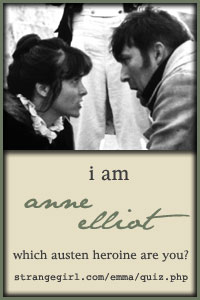
The only test that I could never pass—
I felt ashamed, unfairly failed, when every time the letters refused me again. Was it simply that they didn't spell anything, didn't shape themselves into poems (Rilke's sagacity, or Billy Collins' deadpan wit) or any language I might recognize? A kind of hard-edged Cyrillic cacaphony, without serifs or serafim?
But no, it wasn't that. It wasn't just the letters that I couldn't see, but the whole chart itself, the chart that marked my course, a blur against the wall.
Not being able to see—
So many doctors who didn't understand, who were insensitive to what it meant to me. One took me down the hall with my glasses off, and expected me to find the room again where we'd started. I had to plead for help, be led blindly by someone whose face I never saw. Another prescribed an endless course of drops, stupidly thinking I could be corrected, so I spent all one summer in a haze, lying (all I could do) under the trees in a park near the library a block or two from home, where I might only have imagined the whole goat roasting in a barbecue pit for a family's Sunday picnic, the Morris dancers who appeared in the leaf-dapple out of nowhere, and in a bell's shake disappeared again, like something out of A Midsummer Night's Dream.
My eyes are too nearsighted for lasik surgery, but I would have hesitated anyway. Having read Mark Salzman's Lying Awake, about the nun whose mystic visions and her gift of verse turn out to have been brought about by a life-threatening illness, I have to wonder whether my own particular way of seeing, my eye for beauty, might not be affected (if not caused) by my extreme myopia, and whether if I could see clearly I might lose forever that impossible, aching pleasure in what I do see . . .
image: An eye chart (E chart) for assessment of distant visual acuity, Sarindam7



















No comments:
Post a Comment